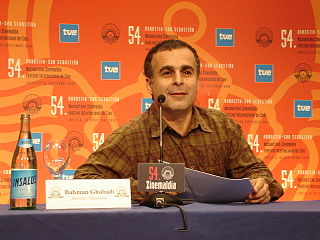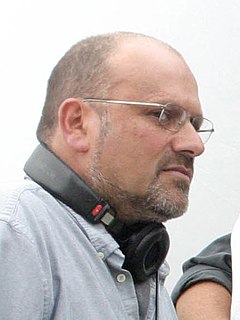A Quote by Richard Engel
Anyone who follows the Middle East and Islamic world in general can't deny it is often a very violent place, that a band of instability now stretches from Algeria to Pakistan.
Related Quotes
The second part of that war was that Muslims came from all over the country to Pakistan, and they met each other. For the first time those men had an awareness of the Islamic world as a whole, not of just Egypt or Algeria or Indonesia, but of what Muslims call the Uma, the Islamic community. And that's an extraordinarily important thing. And that emanated in Pakistan.
Iran is a country that talks about, denies the Holocaust, promises to wipe out Israel, is engaged in terror throughout the world. This is a regime that is giving vent to the worst impulses that you see right now in the Middle East. They deny the rights of women, deny democracy, brutalize their own people, don't give freedom of religion.
Sadly, a U.S. invasion of Iraq 'would threaten the whole stability of the Middle East' - or so Amr Moussa, secretary-general of the Arab League, told the BBC on Tuesday. Amr's talking points are so Sept. 10: It's supposed to destabilize the Middle East. The stability of the Middle East is unique in the non-democratic world and it's the lack of change in Iraq, Iran, Saudi Arabia, Syria, Egypt that's turned them into a fetid swamp of terrorist bottom-feeders.
At the same time, old confrontations have taken on frightening urgency, especially the India-Pakistan conflict over Kashmir and the violent stalemate in the Middle East. Progress on these and other global challenges requires us to develop a larger strategy for American foreign policy, rooted in a fundamental commitment to move the world from interdependence to an integrated global community committed to peace and prosperity, freedom and security.
I was examining what religious identity meant in Africa. Along the edge of the Islamic world, what patterns were shaping identity? And the truth is, when I looked at the rise of violent forms of religion, no single identity was prevalent. It's central to note that in Nigeria, that tree is rooted primarily in Christianity. It's not just Islamic militants in the Middle Belt.
There is a real need to construct a different Middle East. The Middle East must change because the world has changed. And instead of oppositional armies that are fighting usually one against another, now we have a net of terrorists that are trying to destroy everything. They are not two; they are hundreds.
It was important for me to show that Beirut and Lebanon were once the pearl of the Middle East. Beirut was once called the Paris of the Middle East and to have that feeling of a destroyed place that once was beautiful and glamorous and visually impressive was important. I think it's even sadder to get the feeling that this country, and indeed the whole Middle East, could have been a major force in the world if people would get together and forget about destruction, death and wars. But unfortunately, it's not happening yet.
































